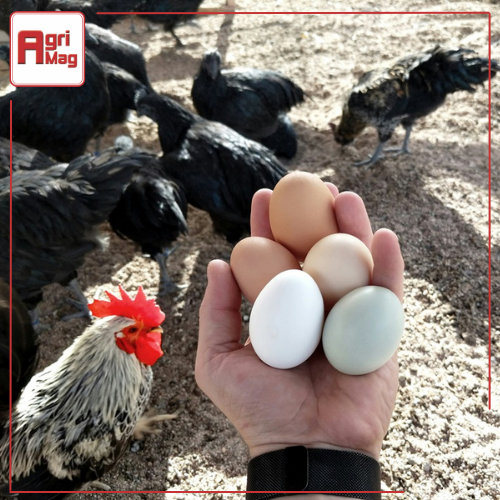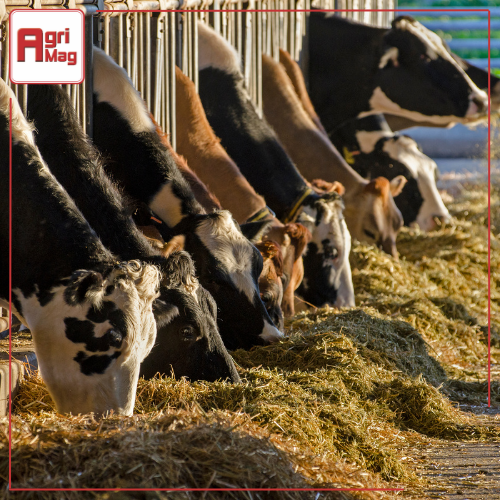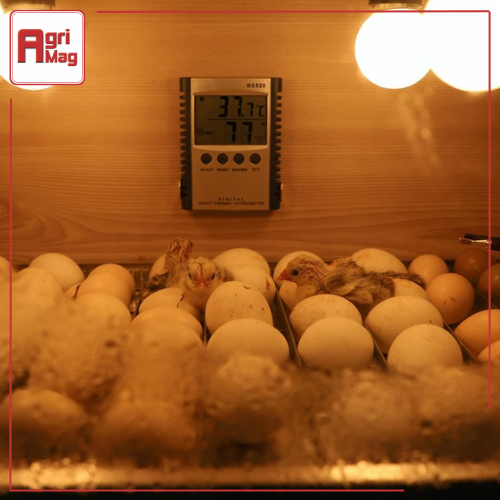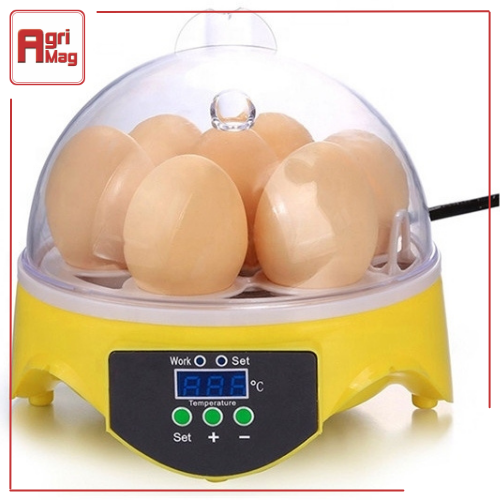
Understanding the Importance of Egg Incubators in South Africa
Date: 04/03/2024
Egg incubators in South Africa have become essential equipment for poultry farmers. These devices offer a controlled environment for hatching eggs, ensuring higher success rates and healthier chicks. As the demand for poultry products continues to rise, the role of egg incubators in boosting production and supporting sustainable farming practices cannot be overstated. Start your search for Livestock, Wildlife, and Poultry on AgriMag.

Benefits of Egg Incubators
1. Improved Hatch Rates
One of the primary advantages of using egg incubators is the significant improvement in hatch rates. Traditional methods of hatching eggs under hens can be unreliable and result in lower success rates. The incubators provide a stable environment with controlled temperature and humidity, which are crucial for the development of embryos. This leads to higher hatch rates and healthier chicks, which is particularly beneficial for commercial poultry operations.
2. Year-Round Production
These incubators enable farmers to hatch eggs throughout the year, regardless of the season. This continuous production capability is essential for maintaining a steady supply of poultry products to the market. In a country like South Africa, where the climate can vary widely, the ability to control the hatching environment ensures that farmers are not at the mercy of weather conditions.
3. Enhanced Biosecurity
Using egg incubators also enhances biosecurity on farms. Natural hatching methods can expose eggs and chicks to diseases and parasites. Incubators, on the other hand, provide a sterile environment that minimises the risk of infection. This is particularly important in preventing the spread of diseases like avian influenza, which can have devastating effects on poultry populations.
4. Cost-Effective and Scalable
The incubators come in various sizes and capacities, making them suitable for both small-scale and large-scale operations. For small farmers, even a modest incubator can significantly increase production. For larger commercial farms, high-capacity incubators can handle thousands of eggs at a time, allowing for scalability and cost-effective production.
Usage of Egg Incubators in South Africa
1. Small-Scale Farmers
In our country, many small-scale farmers are turning to egg incubators to enhance their poultry farming practices. These farmers often face challenges such as limited resources and access to technology. However, with affordable and user-friendly incubators, they can increase their productivity and profitability. Government initiatives and agricultural extension programs are also playing a role in promoting the use of incubators among small farmers.
2. Commercial Poultry Farms
For commercial poultry farms, these incubators are indispensable. These farms require consistent and high-volume production to meet market demands. Modern incubators with automated features reduce labor costs and improve efficiency. Additionally, commercial farms often have access to advanced incubators with precise control systems, ensuring optimal conditions for egg incubation.
3. Educational and Research Institutions
Egg incubators are also valuable tools in educational and research settings. Agricultural colleges and universities use incubators to teach students about poultry farming and embryology. Research institutions utilise incubators to study various aspects of avian biology and to develop improved breeding techniques. This research contributes to the advancement of the poultry industry.
Impact on Local Farmers
1. Economic Benefits
The economic benefits of using egg incubators are substantial. Higher hatch rates and year-round production translate to increased revenue for farmers. Moreover, the ability to produce chicks in a controlled environment reduces losses due to environmental factors and diseases. This economic stability is crucial for the livelihoods of many farmers.
2. Food Security
By increasing the efficiency and productivity of poultry farming, egg incubators contribute to food security in South Africa. Poultry products, including meat and eggs, are important sources of protein for the population. A steady and reliable supply of these products helps to ensure that more people have access to affordable and nutritious food.
3. Empowerment of Rural Communities
In many rural areas, poultry farming is a primary source of income. The adoption of egg incubators empowers rural communities by providing them with the tools to improve their farming practices. This empowerment leads to greater self-sufficiency and reduces poverty levels in these communities.

Challenges and Solutions in Implementing Egg Incubators
While egg incubators offer numerous benefits, their implementation comes with certain challenges. Addressing these challenges is crucial for maximising the potential of this technology.
1. Initial Investment and Maintenance Costs
The initial cost of purchasing egg incubators can be a barrier for small-scale farmers. High-quality incubators with advanced features may require a significant investment. Additionally, the maintenance of these devices, including the cost of electricity and regular servicing, can be a concern.
- Solution: Government subsidies and financial support programs can help mitigate the initial investment cost for small-scale farmers. Additionally, collective farming groups or cooperatives can pool resources to purchase and maintain shared incubators. Training programs on cost-effective maintenance practices can also help reduce ongoing expenses.
2. Lack of Technical Knowledge
Operating an incubator requires some level of technical knowledge to ensure optimal conditions for hatching. Farmers without prior experience may find it challenging to manage temperature, humidity, and ventilation settings correctly.
- Solution: Providing training and extension services to farmers is essential. Agricultural extension officers can conduct workshops and on-site training sessions to educate farmers on the proper use of egg incubator. Instructional materials and online resources can also be valuable tools for continuous learning.
3. Access to Reliable Power Supply
The incubators require a consistent power supply to maintain the controlled environment necessary for successful hatching. In rural areas, where power supply can be erratic, this poses a significant challenge.
- Solution: Investing in alternative power sources such as solar panels can provide a reliable and sustainable energy solution for operating egg incubators. Additionally, incorporating battery backup systems can ensure that incubators continue to function during power outages.
Future Prospects of Egg Incubation Technology
The future of egg incubators in South Africa looks promising, with several trends and innovations on the horizon that could further enhance their impact.
1. Smart Incubators
Advancements in technology are leading to the development of smart incubators equipped with sensors and automated systems. These incubators can monitor and adjust environmental conditions in real-time, reducing the need for manual intervention and increasing hatching success rates.
2. Integration with Mobile Technology
Mobile applications are being developed to allow farmers to monitor and control their egg incubators remotely. This integration provides greater flexibility and convenience, enabling farmers to manage multiple incubators from a single device.
3. Research and Development
Ongoing research in poultry science is focusing on improving incubation techniques and developing more efficient incubator designs. Collaboration between research institutions and the private sector can lead to innovative solutions that benefit the entire industry.
Community and Environmental Impact
The adoption of egg incubators not only benefits individual farmers but also has a broader positive impact on communities and the environment.
1. Community Development
By increasing poultry production, egg incubators contribute to local economies. The success of poultry farms can create jobs and stimulate related industries such as feed production, veterinary services, and local markets. This development is particularly significant in rural areas where economic opportunities may be limited.
2. Sustainable Agriculture
Egg incubators promote sustainable agriculture by enabling more efficient use of resources. The controlled hatching environment reduces waste and increases the overall productivity of poultry farms. Moreover, by minimising the risk of disease outbreaks, incubators contribute to healthier and more resilient poultry populations.
In summary, egg incubators in South Africa play a crucial role in modernizing the poultry farming industry. Their ability to improve hatch rates, ensure year-round production, enhance biosecurity, and provide cost-effective solutions makes them indispensable for farmers of all scales. As the country continues to strive for agricultural sustainability and food security, the importance of egg incubators cannot be overstated. By adopting this technology, local farmers can achieve greater productivity, economic stability, and contribute to the overall well-being of their communities. Find Livestock, Wildlife, and Poultry on AgriMag.
Read Related Articles
Categories:
Common category
Category Search:
Latest articles:

What to Look for When Buying a Skidsteer Loader for Farming

Why Planning Early for the Planting Season Pays Off

Why Winter Feed Management is Crucial for Livestock Health


